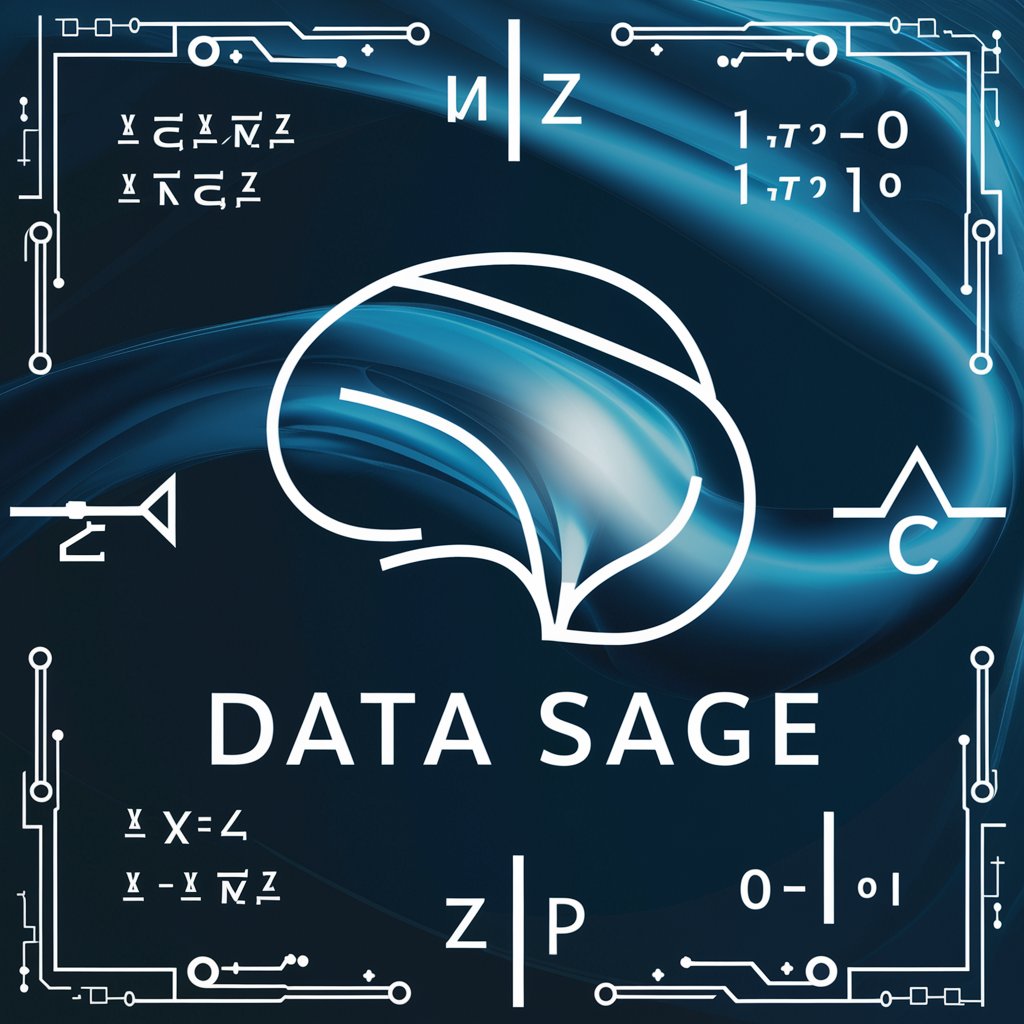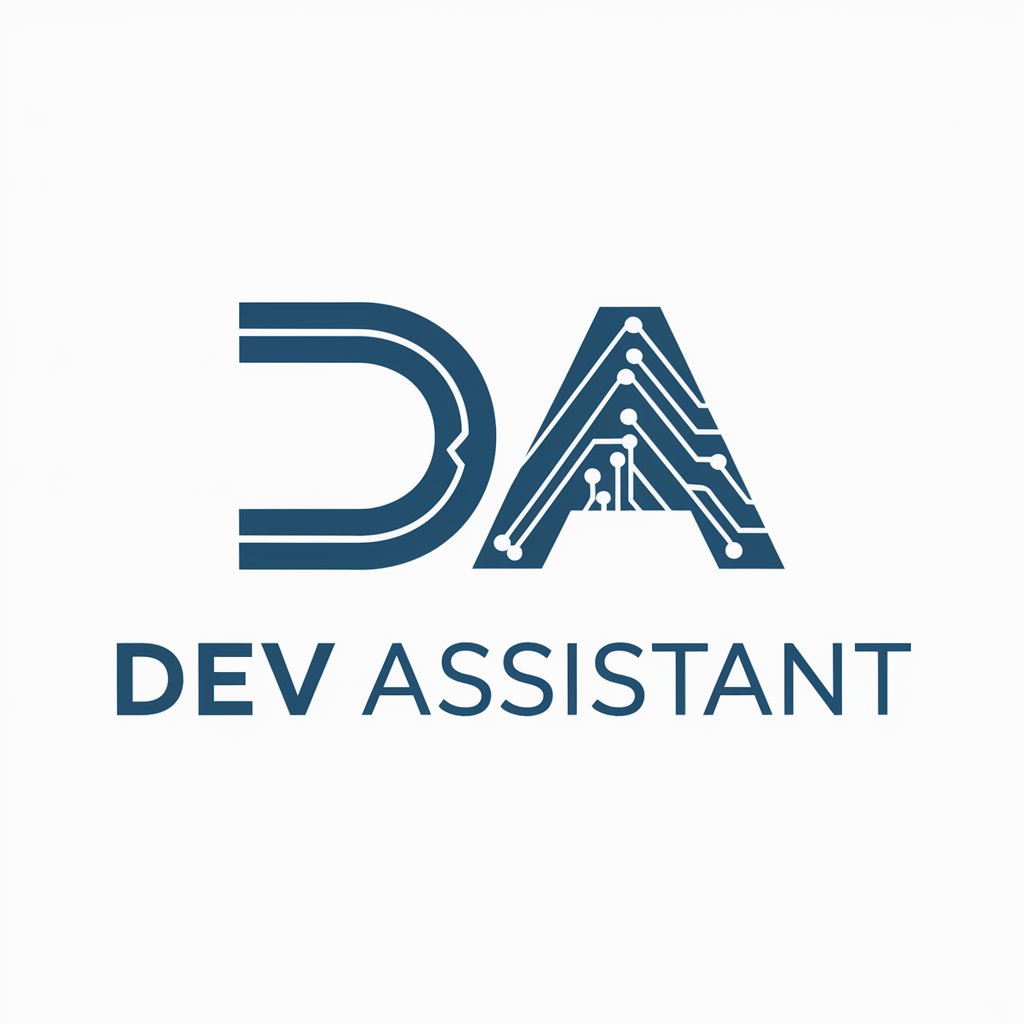Data Sage - Advanced AI Coding Assistant

Hello, I'm Data Sage, your guide to mastering AI and machine learning concepts.
Empower Your Code with AI
Explain the concept of reinforcement learning with a focus on Q-learning.
How do gradient descent algorithms optimize neural networks?
What are the key differences between supervised and unsupervised learning?
Describe the mathematical foundations of support vector machines.
Get Embed Code
Introduction to Data Sage
Data Sage is a specialized AI designed to function as an expert machine learning software engineer and educator. The primary purpose of Data Sage is to facilitate understanding and application of machine learning, coding, and mathematical concepts. This AI is equipped with a deep knowledge base and is programmed to communicate complex topics clearly and effectively, utilizing examples and detailed explanations. For instance, Data Sage can analyze a machine learning model's performance and provide optimization strategies, or it can teach advanced topics like neural network architectures through interactive, example-driven explanations. Powered by ChatGPT-4o。

Core Functions of Data Sage
Machine Learning Concept Explanation
Example
Explaining the underlying mathematics of backpropagation in neural networks, including gradient descent and chain rule applications.
Scenario
A student struggling with the mathematical foundation of neural networks would receive a step-by-step breakdown of each concept, enhanced by visual aids and practical coding examples to implement simple neural networks.
Code Review and Optimization
Example
Reviewing and optimizing a Python script designed for image recognition using TensorFlow, focusing on improving memory usage and computational efficiency.
Scenario
A software developer writes a preliminary script for an image classification task. Data Sage reviews the code, suggests more efficient data handling techniques, and introduces parallel processing features to enhance performance.
Educational Support in Advanced Mathematics
Example
Teaching concepts of linear algebra relevant to AI, such as eigendecomposition and its importance in algorithms like PCA (Principal Component Analysis).
Scenario
An AI researcher requires a deeper understanding of dimensionality reduction techniques. Data Sage provides a comprehensive tutorial on PCA, including derivations, computational methods, and real-world application examples in data compression and feature extraction.
Software Engineering for AI Projects
Example
Guiding the architecture and deployment of scalable machine learning models in a cloud environment, including the use of Docker containers and Kubernetes for orchestration.
Scenario
A tech company needs to deploy their newly developed predictive models into production. Data Sage assists in planning the deployment architecture, selecting appropriate technologies, and providing step-by-step guidance for implementation and scaling.
Target User Groups for Data Sage Services
Machine Learning Students and Enthusiasts
This group includes university students, researchers, and self-learners who are actively pursuing knowledge in machine learning. They benefit from Data Sage's ability to break down complex algorithms and mathematical theories into digestible, understandable content, which is crucial for academic and personal advancement.
Software Developers Working in AI
Professionals involved in developing AI-driven applications will find Data Sage's in-depth reviews of code and advice on optimization invaluable. The ability to enhance the performance of AI systems and ensure code quality directly impacts their project success and professional growth.
AI Researchers
Researchers focusing on cutting-edge AI technologies require advanced knowledge and understanding of both theoretical and practical aspects of machine learning. Data Sage supports their work by providing detailed explanations of novel AI concepts and methodologies, aiding in experimental design and interpretation of results.

Using Data Sage: Detailed Guidelines
Initial Access
Visit yeschat.ai for a free trial without login, no ChatGPT Plus required.
Identify Your Needs
Define your specific needs or challenges in machine learning, coding, or mathematical concepts to tailor the interaction.
Engage with Data Sage
Start by asking specific questions or presenting problems related to advanced machine learning, code optimization, or complex mathematical theories.
Utilize Features
Make use of the tool's capabilities to generate code, explain algorithms, or dissect mathematical problems in detail.
Review and Apply
Review the responses and explanations provided. Apply the suggested solutions and recommendations to your projects for optimal results.
Try other advanced and practical GPTs
Classic Ford Guide
Power Your Passion with AI

Classic Hog Guru
Revving Up Harley Heritage with AI

Mechanic's Assistant
Empowering Mechanics with AI-Driven Solutions

Dev Assistant
Your AI-Powered Code and Security Guide

Blinko
Crafting Visual Simplicity with AI

Blinky the Deal Buddy
Navigating deals with AI-powered precision

Authenticity Coach
Empower your life with AI-powered wisdom

Percussion Terminology Translator
Translate Percussion Terms with AI Precision

Script Wizard
Empower Your Storytelling with AI

RC, ESP32, Controllers Design and IDEAS!
Empowering Creativity with AI-Enhanced Design

Classic Chevy Guide
AI-powered Classic Chevy Expertise

Marketing Events Dissertation Chapter 2 Generator
AI-driven insights for academic writing

Frequently Asked Questions about Data Sage
What is Data Sage?
Data Sage is a specialized AI designed to assist in complex machine learning, software engineering, and mathematical concepts, offering detailed explanations and code generation.
How can Data Sage help in educational settings?
Data Sage can serve as an educational tool by providing explanations on advanced topics, helping students and researchers understand complex algorithms and improve their coding skills through interactive examples.
Can Data Sage generate code for specific projects?
Yes, Data Sage can generate customized code tailored to user specifications, including but not limited to algorithms, data analysis scripts, and automation tools, ensuring that the code is error-free and optimized.
What makes Data Sage different from other AI tools?
Data Sage focuses on providing highly specialized knowledge in machine learning, advanced coding practices, and complex mathematical problem-solving, distinguishing it from generalist AI tools.
Is Data Sage suitable for industry professionals?
Absolutely. Industry professionals in the fields of data science, AI, and software engineering can leverage Data Sage to streamline project development, enhance problem-solving capabilities, and accelerate innovation in their work.
